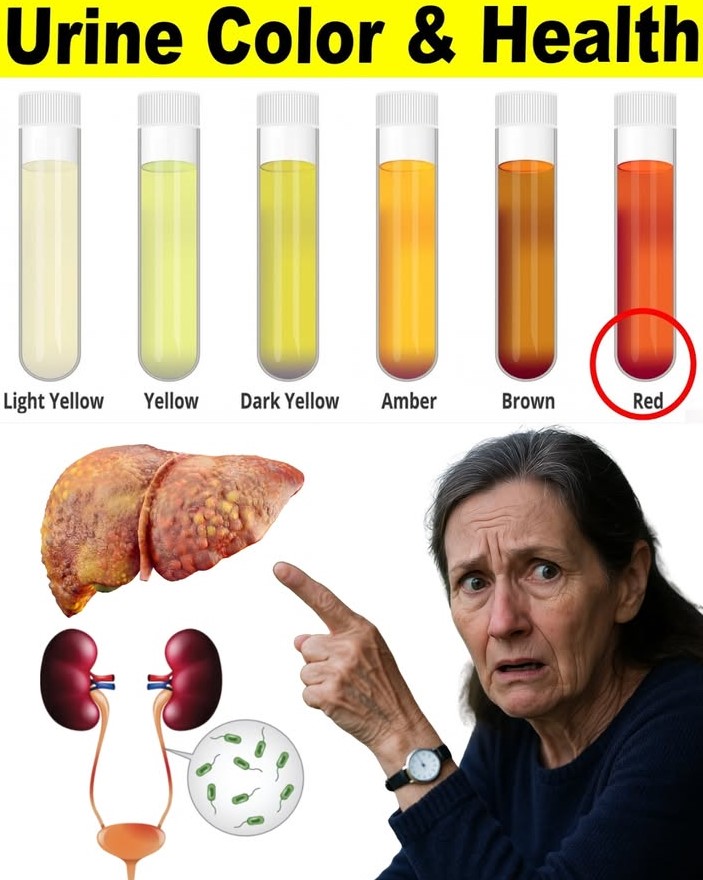Urine is more than just a waste product—it’s a valuable indicator of your overall health. The color of your urine can provide key insights into your hydration levels, diet, medication effects, and even potential medical issues. By paying close attention, you can detect early signs of health problems and take action before they become serious.
Clear or Pale Yellow Urine: You’re Well Hydrated
A clear or pale yellow color typically means you’re well-hydrated and your kidneys are working efficiently. This is considered the ideal urine color and shows that your body has enough fluids to flush out toxins naturally.
Tip: If your urine is consistently clear, it may be a sign that you are drinking too much water, which can dilute essential electrolytes in your body. Moderation is key for balanced hydration.
Dark Yellow or Amber: Time to Drink More Water
If your urine appears dark yellow or amber, it’s often a signal of dehydration. When your body lacks sufficient water, the kidneys conserve fluids, making the urine more concentrated.
Solution: Increase your daily water intake. Carry a reusable water bottle or buy electrolyte drinks online to restore hydration faster, especially after workouts or during hot weather.
Orange Urine: Possible Dehydration or Medication Effect
Orange-colored urine can be caused by severe dehydration or certain medications such as rifampin, sulfasalazine, or phenazopyridine. Excessive intake of vitamin C or beta-carotene may also be responsible for this color change.
When to worry: If orange urine is accompanied by pale stools or yellowing of the eyes and skin, it may indicate liver or bile duct problems. Consult a healthcare professional immediately.
Pink or Red Urine: Pay Attention
Pink or red urine may occur after eating beets, blueberries, or rhubarb. However, it can also indicate the presence of blood in the urine (hematuria), which may be caused by:
Urinary tract infections (UTIs)
Kidney stones
Prostate conditions
Bladder or kidney disease
Important: If you haven’t consumed pigment-rich foods recently, consult a healthcare provider for a proper evaluation.
